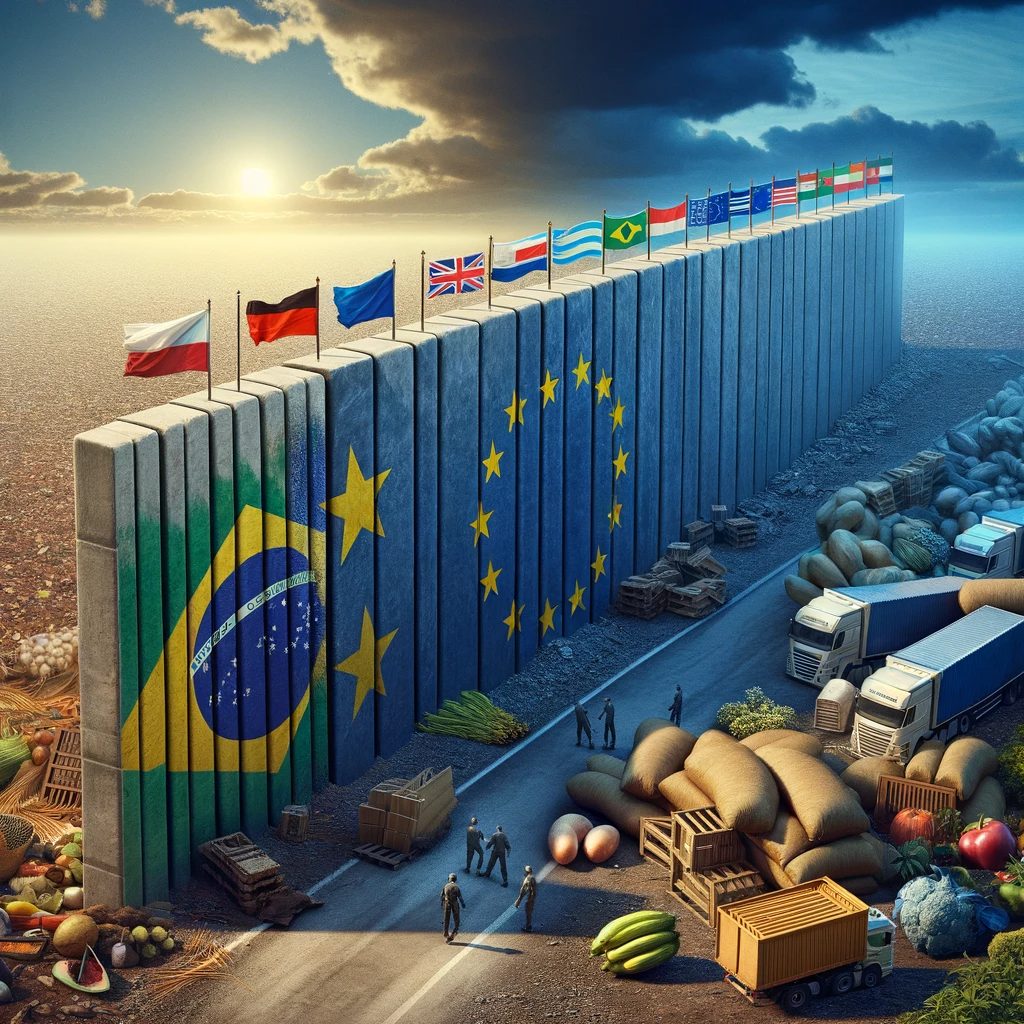
The long road to ratification of the trade agreement between Mercosur and the European Union has been marked by obstacles and controversies, especially on the European side. This article aims to explore the challenges faced, focusing on European concerns and the emerging protectionism that is shaping the bloc's trade policy.
The European Union has faced internal and external criticism for its stance on the agreement. Environmental groups and farmers have exerted significant pressure on European governments, arguing that the agreement could have negative impacts on the environment and local agricultural production. Concern about deforestation in the Amazon and Brazil's compliance with environmental standards has been a key point in this debate. Sources like “The Guardian” e “The world” reflect a growing environmental awareness among European citizens, which pressures politicians to adopt stricter stances on trade agreements.
On the other hand, European protectionism has been a topic of discussion in international media. Publications like “South China Morning Post” e “The Times of India” have pointed to growing protectionism in the EU, which seeks to protect vulnerable sectors of its economy, mainly agriculture. This protectionism, sometimes disguised as environmental or health concerns, represents a significant challenge to the implementation of the agreement.
The newspaper “Rossiyskaya Gazeta”, from Russia, for example, highlights how the European Union has been increasingly cautious in its trade agreements, prioritizing the protection of its internal interests. This reflects a change in European trade policy, which has historically been one of the bulwarks of global free trade.
Japanese public opinion, represented by sources such as “The Japan Times”, offers an interesting outside perspective, noting how the EU, despite its claims of openness and international cooperation, has leaned towards a more protectionist approach, influenced by both internal political issues and external pressures.
However, It is important to highlight that the European Union faces a dilemma. On the one hand, there is a need to protect your own economic interests
icos and address the concerns of its citizens. For another, The closing of this agreement with Mercosur represents a significant opportunity to strengthen economic and political ties with a strategic region.
The EU's stance towards this agreement reveals significant internal tensions. Countries like France and Germany have been more cautious, weighing the political and environmental consequences of the agreement. Meanwhile, nations with strong agricultural sectors, like Spain and Portugal, have been more favorable, Envisioning opportunities to expand markets for your products.
This scenario highlights the complexity of modern trade policy, where agreements are not just about tariffs and quotas, but also about values, sustainability and internal policy. The case of the Mercosur-EU agreement is a clear example of how trade negotiations are intertwined with environmental issues, social and political.
Indeed, European resistance to the agreement is not limited to a question of trade protectionism. It reflects a broader shift in the way international trade is being conceived, where aspects such as human rights, environmental protection and sustainability are gaining greater importance. This is a sign of the times, where economic globalization faces growing challenges from social movements and environmental concerns.
To complete, the impasse in the Mercosur-EU agreement highlights the evolution of global trade policy. While protectionism emerges as a challenge, Deeper questions of sustainability and global responsibility shape the future of international trade. Ratification of this agreement could represent a significant step forward for global trade, but it also reveals the complexities and challenges that nations face in balancing economic interests with environmental and social responsibilities.
